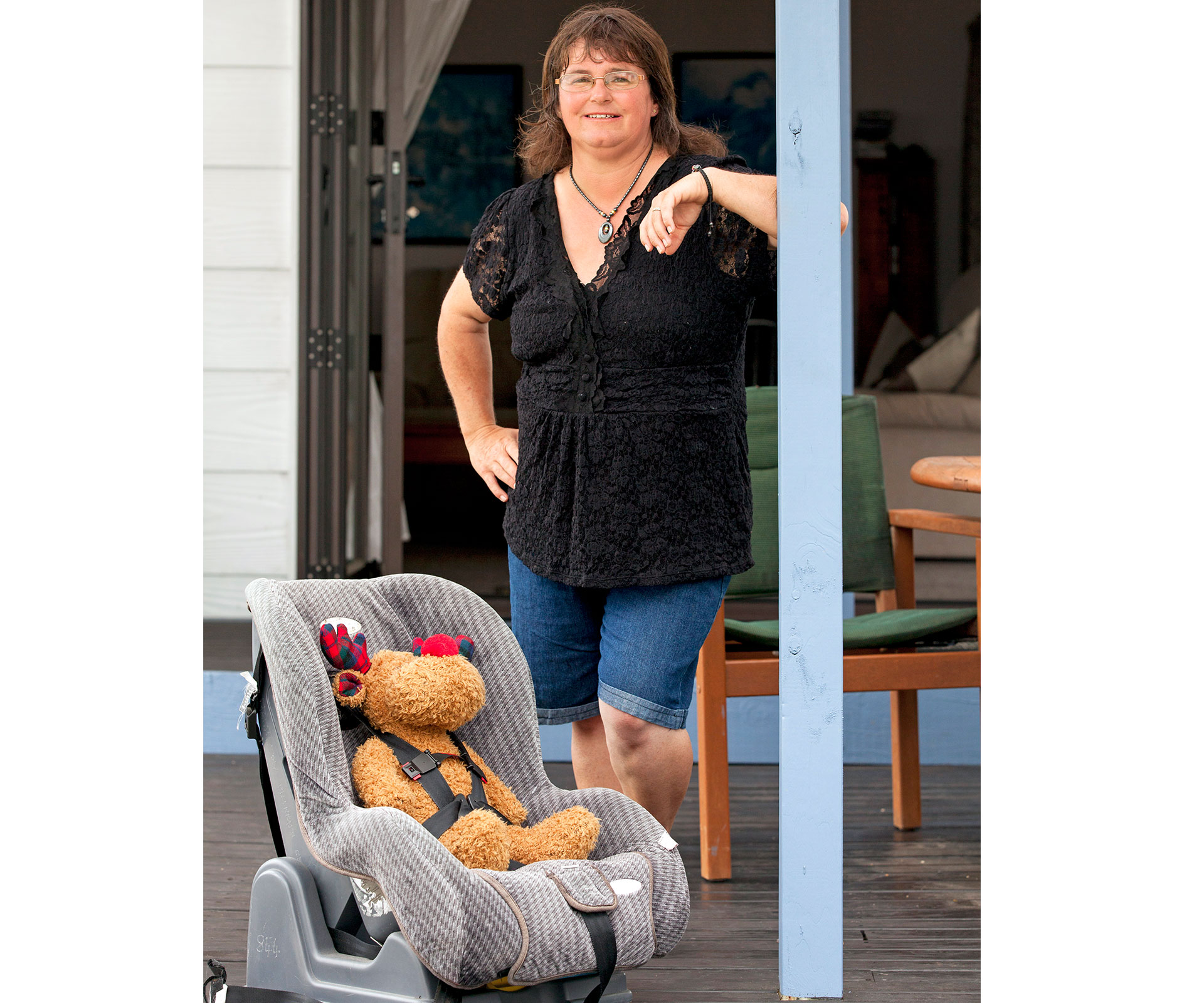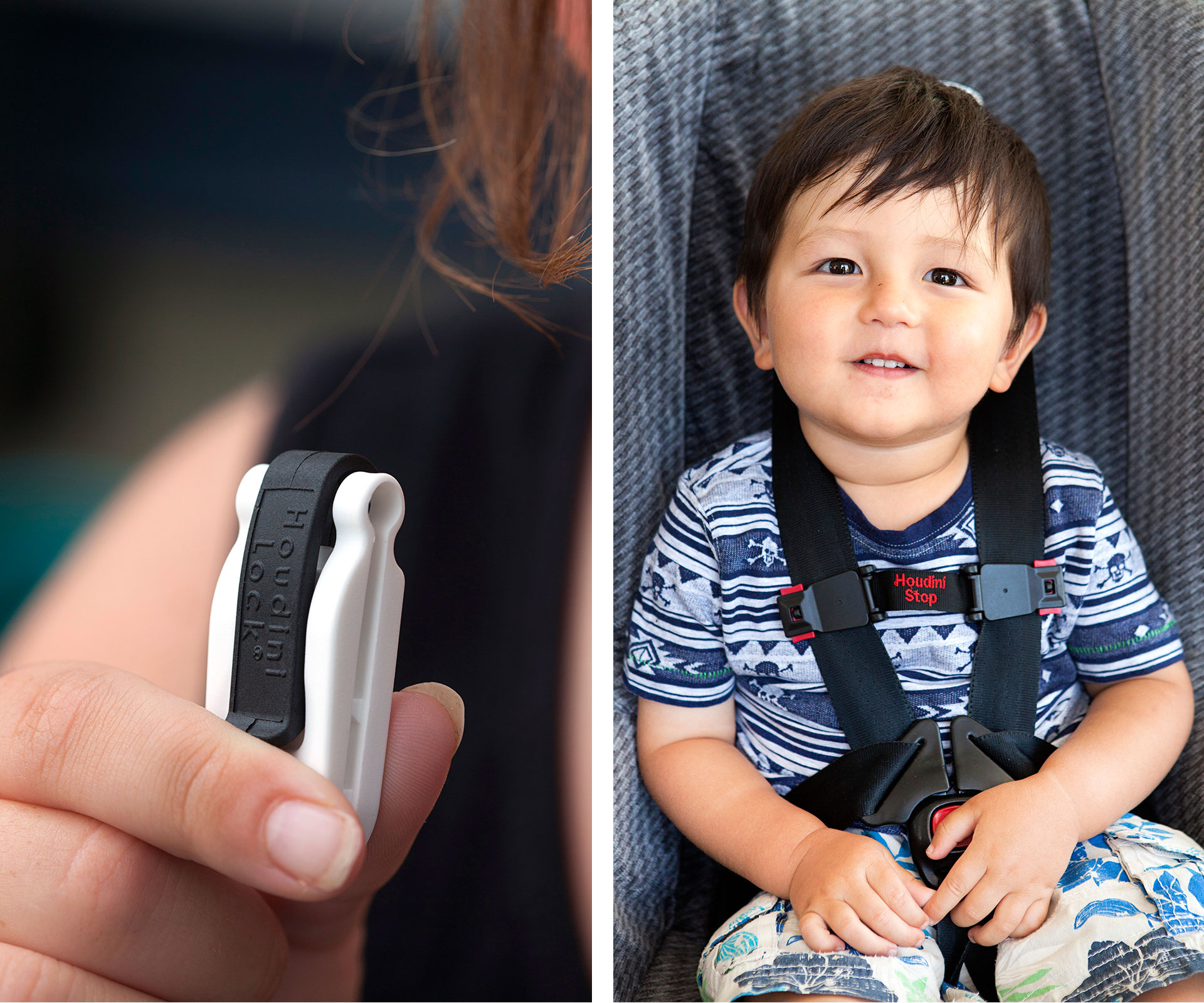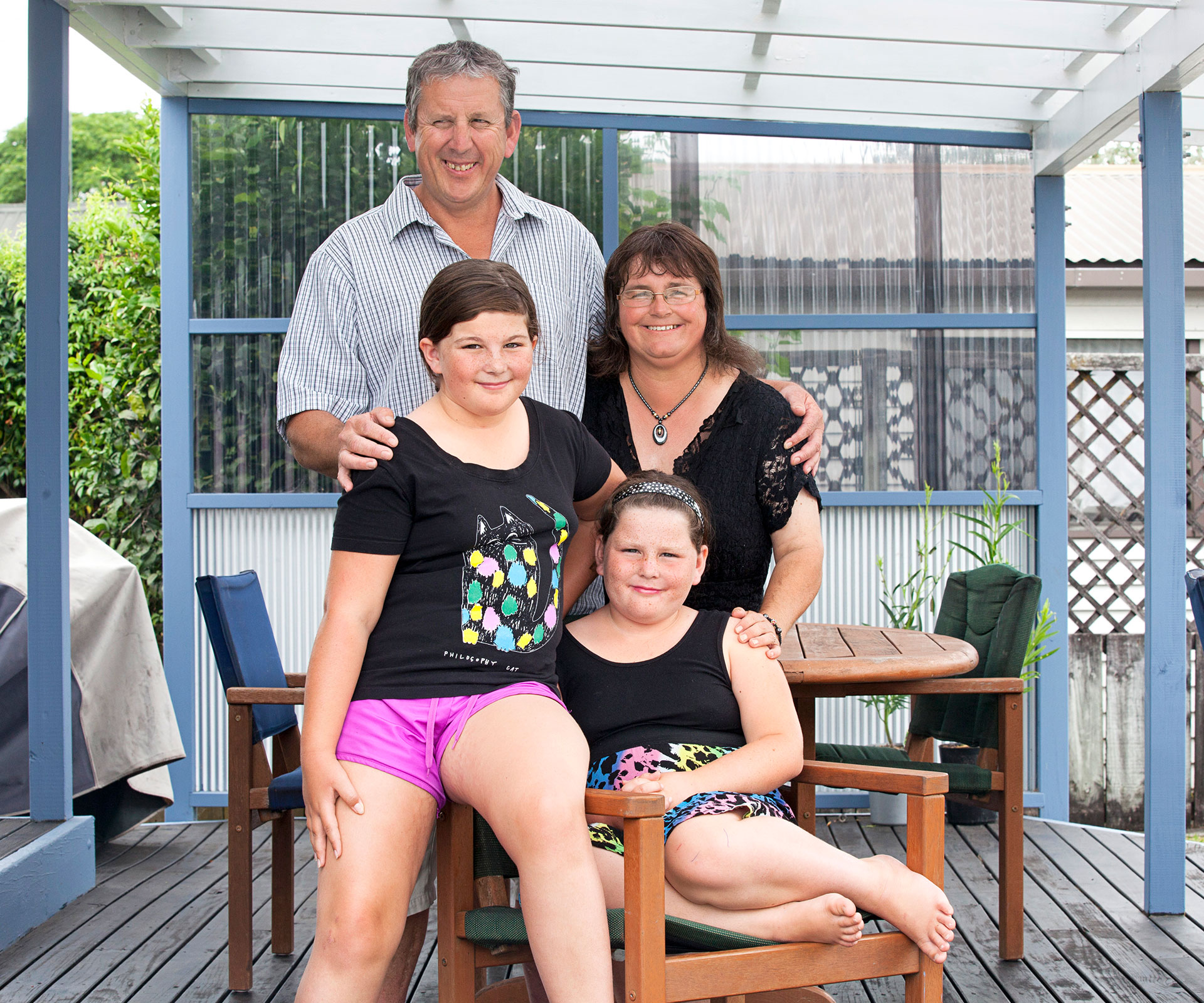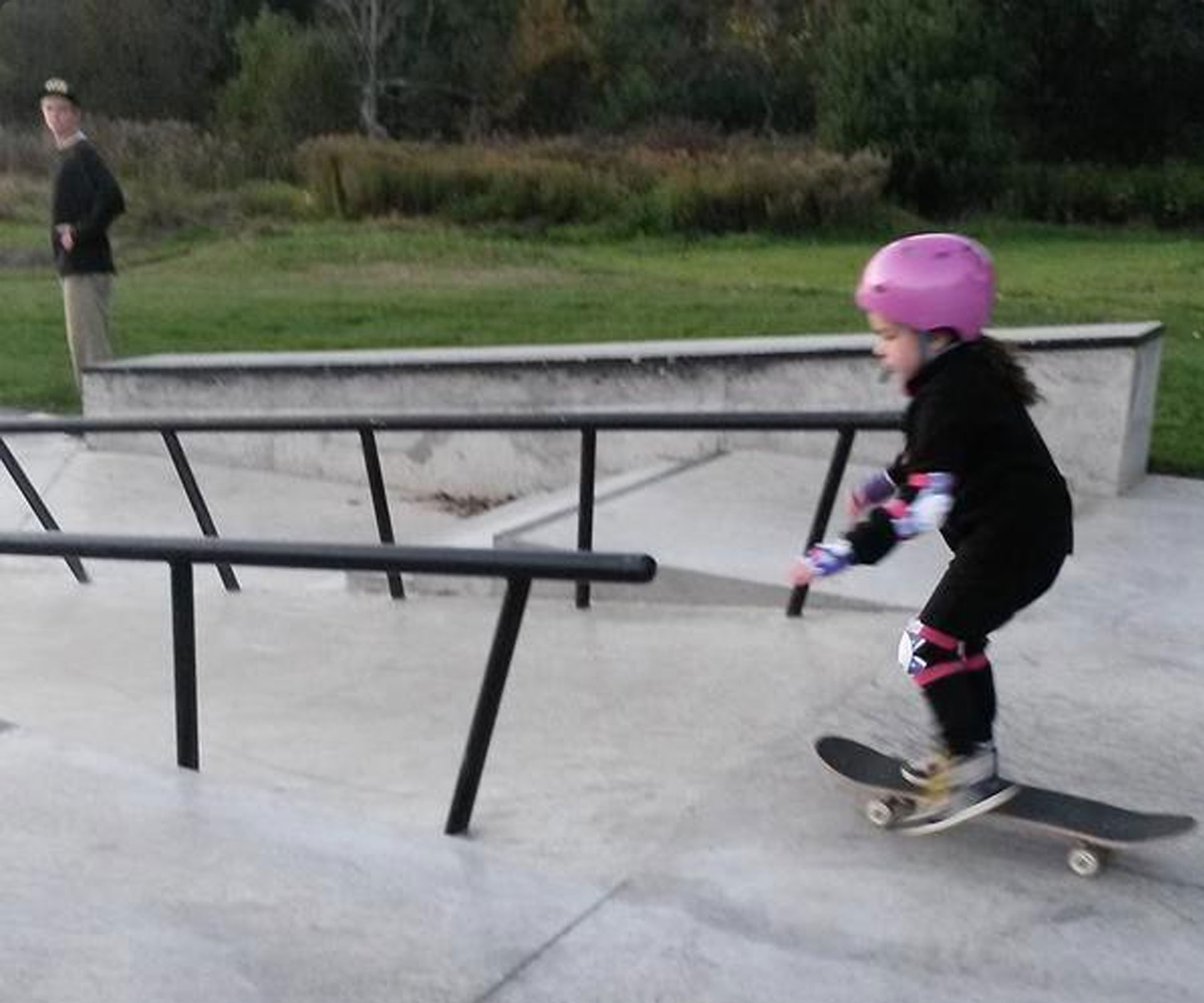Every day, every minute – possibly every second – adults all over the world are clipping children into car safety seats. It saves countless lives, but children often don’t see it that way. They see the seat as an annoyance and a challenge to be overcome.
Hamiltonian Bianca Richardson, 41, calls them Houdini kids. She had one herself – a toddler who could wriggle out of her safety seat and leap around the back of the car, causing chaos and mayhem. Anarchy in nappies. Richardson’s answer was to invent a device to thwart her young escape artist’s antics.
She never guessed her Houdini Stop would catapult her into the world of international business. In just five years, she’s gone from being a stay-at-home mother of two to a successful businesswoman managing an ever-expanding pool of distributors and contractors in order to supply a growing demand for her range of child-safety inventions. Last year, her turnover was close to $500,000 and she reckons she’s only just getting started.
It’s tempting to see Richardson as something of an accidental entrepreneur. She wholeheartedly disagrees. “I’ve been faced with so many obstacles, I can honestly say there’s nothing accidental about it,” she says. “I’m still here out of sheer determination.”

Bianca Richardson’s range of child-safety products includes the Houdini Stop for car seats.
Richardson’s dogged and inventive qualities revealed themselves early in life as a tomboy growing up on farms on the West Coast.
“My brother and I were left to our own devices a lot. We were always out in the shed, tinkering with old motors. I’d take my toys apart with screwdrivers and put them back together again. It was incredibly formative. My father used to say, ‘You can work anything out if you set your mind to it’ and he was right. If I didn’t get something right the first time, I’d look for another way of fixing something.” Forget Charlie’s Angels, her hero was MacGyver.
It was the same can-do approach that saw her right when, by then living in the Waikato, she left school and went to work as a grocery assistant at her local supermarket. “A customer approached me one day and said, ‘I like your attitude. Would you like to come and work as my office junior?’”
She accepted and a couple of years later she was offered another opportunity, this time as a trainee administration manager for a Hamilton-based company making plastic mouldings.
Richardson learned a lot about business during her nine years with the company, “including exposure to product development. I can see that a business degree might have helped with regards to industry credibility, but from a practical perspective, I picked up way more knowledge from the coal face than I ever would have learned from a book.”
Not that Richardson understood that when she left in 2002 to have her first child, daughter Courtney. Life was busy and three years later she and her machine-operator husband, Dennis, welcomed Jessica – their “little Houdini” – into the world. “She arrived six weeks early and was always restless. By 15 months, she was getting her arms out of her car-seat straps and three months later she was getting out of the seat completely.”
Richardson found a product that promised to solve the problem, “but within a couple of minutes she’d pulled it to bits and was on the loose in the back seat again. There was only one thing for it and that was to make my own. I spent $20 on a bit of elastic and some bracer clips – the kind used for holding up trousers.”
After five minutes at the sewing machine she’d created a simple double-ended device that clipped between the arm straps of a child’s car seat. It foxed her daughter into submission and soon friends were putting in their orders. That’s when Richardson realised she had a business on her hands.
Naming her invention after the early 20th-century stunt performer and escape artist Harry Houdini occurred to Richardson after reading a marketing book.
“I realised if I could come up with a strong trademarked brand name – something simple but evocative of what the product was all about – I’d be in a strong position.”
Richardson still had some fine-tuning to do before she could start marketing the product. The prototype clips were metallic and heated dangerously in the sun, but her search for a heavy-grade plastic version was proving fruitless.
“Getting a mould especially made would have cost tens of thousands of dollars. Prohibitive, really. Then, after trawling just about every shop in Hamilton, I walked into a buckle shop and explained to the guy behind the counter what I was looking for,” she says. “Out the back, there just happened to be a visiting buckle supply rep. He overheard the conversation, came out and said, ‘We have a new clip that we’ve just finished developing. It sounds like exactly what you want. Why don’t you let me import a few for you?’ It was a real stroke of luck. The clips were perfect and they cost me just 50 cents each.”

Richardson’s Houdini Lock (left) stops youngsters such as two-year-old Brendan Fockens (right) escaping from their car seats.
After finding a sewing contractor and a package designer, Richardson placed a modest order for 30 Houdini Stops and listed them on Trade Me. Her next order was for 500. She now sells thousands every month around the world.
Going global, however, wasn’t without its challenges. Her first overseas market was Australia and it soon became clear retailers wouldn’t stock the product without proof that it met official safety standards. “In the early days, some manufacturers told me that crash-testing it would cost hundreds of thousands of dollars. Being locked out of the Australian market forced my Australian distributor to investigate and it turned out we could get my Houdini Stop tested at a Melbourne facility for $A4000.”
Forging ahead with the testing process was nerve-racking, she admits. “If it didn’t pass, I suddenly had no product at all.” In September 2009, the Houdini Stop was given the thumbs-up.
These days, Richardson is proud her invention potentially saves lives. She sells into Australia, the UK, Ireland, Europe, the US and Canada and has her eye on the lucrative Brazilian market with its population of 202 million. She has also developed several more Houdini offerings, including one to stop babies taking off their nappies, another to stop toddlers getting into rooms and a clip system that prevents young children kicking off their blankets in the night.
Building her business from the ground up has been enormously satisfying, all the more because she started on a shoestring.
“I didn’t spend thousands of dollars up front because we couldn’t afford to. We were living on one income and my husband made it clear if the enterprise didn’t pay for itself, it wasn’t going to happen. I was a bit wild about that for a while, but it didn’t stop me. Now, he is very proud. He tells everyone, ‘My wife’s an inventor.’”

Dennis and Bianca Richardson with daughters Courtney, 12, and “Houdini baby” Jessica, now nine.
She’s still careful with her cashflow, pumping most of her takings back into the business and, surprisingly, her success hasn’t led to a diminished family life. “If anything, life is more relaxed because we don’t have to look for income. Just like when I first started out, I do most of my work at night when the kids are in bed and when they’re at school. I can nip out whenever I want. We still go away for weekends…”
Richardson is the first to acknowledge she wouldn’t be where she is today without help. Early on, she asked for support from Business Mentors New Zealand, which has since linked her with two business operators offering experience in the areas she has struggled with.
“At the beginning, my issue was with writing contracts for distributors. My first mentor was in the pavlova business. It didn’t matter that our products were different. He had exactly the knowledge I needed.” Privately, she also approached a customer of her former employer. “I’d always liked the way he packaged his products and I wanted to know how to go about doing something similar. It took a bit of guts to call him up out of the blue, but he was exactly the kind of person I needed. He’s known as a straight-shooter and I wanted somebody who would honestly tell me if I was wasting my time. He took me under his wing. I don’t think I will ever not have a mentor. All businesspeople need them to remain motivated.”
Being brave in business has meant making some tough decisions. Richardson, who last year won the Waikato Regional prize for the ANZ Flying Start Business Plan Competition, has occasionally had to let go of smaller contractors and distributors in favour of bigger operators in order to allow the business to grow. “I didn’t like doing it. In fact, I felt terrible, but it was either that or stymie the business.”
Another big lesson has been to closely examine her assumptions before releasing a new product. When she launched her Houdini Door, she “assumed people wanted a product to help them keep children inside their rooms. All the information on the packaging and the website was phrased in that way but, after a while, it became clear what people really wanted was a product that kept children out of rooms.”
Her marketing for the Houdini Door has changed accordingly and Richardson considers it a valuable lesson. “I truly believe in the snowball effect. If you have a product, service or business you’re really passionate about, you won’t give up when you encounter obstacles. If you keep knocking on doors and trying alternatives, eventually your small business base will get bigger and bigger, faster and faster…”
These days Courtney is 12 and “Houdini baby” Jessica, is nine. Richardson still uses a photograph of Jessica as a toddler in her car safety seat to promote the Houdini Stop, for which her daughter receives a small royalty. “It’s a way of giving her something back and it will be useful if she wants to go to university.”
Both girls are keen to follow in their mother’s footsteps. Courtney recently won an ASB competition for her “Vege Dumper” invention, designed to hide uneaten vegetables from parental sight. Having her daughters join the Houdini business in another few years may well be possible. Richardson’s goal is to reach $1 million turnover within three years.
“One of my business mentors says everybody at the end of the day goes into business to sell it, but I’m not ready to sell yet. I get an enormous thrill out of inventing things and I still have a few products up my sleeve that I want to launch.”
.jpg)

